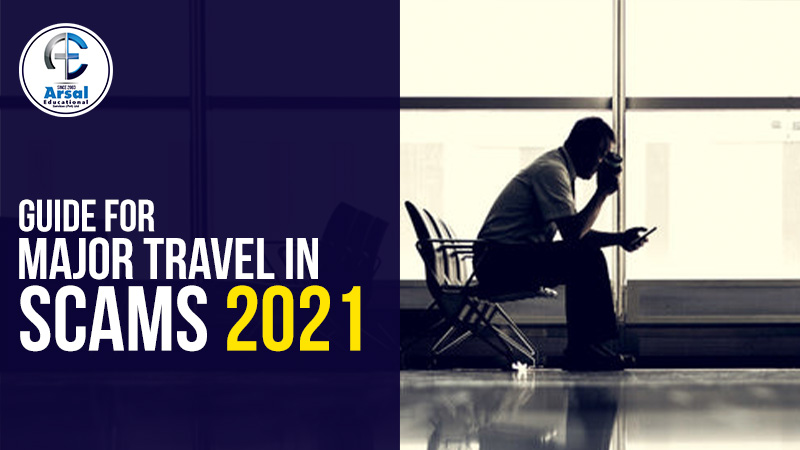
MAJOR TRAVEL SCAMS IN 2019
Travel scams are real. When we start traveling, we should
consider them too. Today, we want to give you a list of travel scams to avoid.
Avoiding travel scams needs a lot of common sense and a healthy dosage of suspicion. If it seems too good to be true, it probably is! Here are some of the more universal ones to avoid:
The taxi overcharge
This is one of the most communal travel scams out there. Either the driver will tell you the meter is broken and try to charge you a huge rate or you’ll see the meter go higher and faster than Superman! To avoid this scam, first, you need to know how much a ride should cost. Always ask the hostel or hotel staff what a ride should be so for having a frame of reference. Next, if the cabbie tries to negotiate the rate with you, offer him the correct rate. If he refuses, find someone who will put the meter on. If the meter seems to be going up too quickly, pull over and get out. Many tourism boards let you report bad cab drivers, so be sure to always make a mental note of their ID number when you get in the cab. And never get in an unlicensed cab — no matter how amazing the deal is!
Your accommodation is “closed”
Another cab driver scam: your driver will try to tell you
your hotel or hostel is overbooked or even closed. It’s not. Just ignore them
and insist on going there. If they keep trying, continue to insist. They will
usually shut up about it.
A note on taxis: In this smartphone era, we have our power back. We’re no longer helpless because we can look on a map and see the actual correct route. I like to look on Google Maps and see what the best route is. If it looks like they aren’t taking it, I’ll usually point to the map and insist they go that way. (I left a taxicab in Bangkok recently because he tried to pull a fast one on me by taking a longer route.) If I’m going to a country where I won’t have phone access, I preload the map onto my phone. Your phone’s GPS will work even if you don’t have a connection. Additionally, ride services like Uber place accountability on drivers, which greatly reduces the likelihood of you being cheated.
The shell game
Mostly People see this one all the time .How people fall for it, never known. It’s such an old and obvious scam. It’s in movies, for heaven’s sake! You’ll see people on the street playing a card game or hiding a ball in a cup and someone guessing where it is and winning money. Then you decide to play — and you win! Thinking this is great, you bet more money and then you lose — and lose again and again. Don’t get suckered into this con. Remember, the house always wins!
“Come in for tea and help me write a letter!”
This scam is also common in many countries. People while
traveling on the road side requests you to write some kind of letter for their
beloved one which preferably lived in yours home town. They also get you the
nearest tea/ coffee shop & maybe give me some tea, and then pressure you
into buying something. This uses the psychological principle of reciprocity: he
gave me tea, he was nice to me, so soon you’ll feel socially obliged to buy
something.
To avoid this, don’t follow people to a second location or believe they suddenly have a cousin who happens to live exactly where you do!
Free bracelets/rosemary/anything they can put on you
In this scam, common in Europe, a friendly person will approach you for a quick chat,
then place a bracelet around your wrist or hat on your head, or give you a
little sprig of rosemary. Once you have it on your person, they will demand
money. When you refuse, they will begin to cause a scene in the hopes you would
rather give them some money than be embarrassed.
Don’t allow anyone to put anything on your body, and be extremely wary of accepting anything for free. If they put something on you, simply take it off, give it back to them, and be firm about it. Then walk away and move on with your day. They won’t chase you.
The spill on your clothes
There you are, minding your own business, and someone
spills something on you. Ruins your day, but accidents happen, right? They are
profusely sorry and offer to clean it up, dabbing the stain, and apologizing.
While you are all flustered, they are picking your pocket. By the time you
realize what has happened, they are long gone.
This scam is also common in Europe. Beware of people encroaching on your person if it’s not a crowded area already. If this happens, push people away and clean it up yourself.
Motorbike scam
You rent a bike, and then when you bring it back, the
owner demands an additional payment or expensive repairs because there is some
damage you didn’t know about.
To avoid this, take photos of the bike first to document any previous damage. Go around it with the owner so they know what you are taking pictures of. Use your own lock, and keep the bike out of sight and off a main street when you park it. Sometimes an owner will send someone to mess with the bike or steal it so you have to pay! Also, always make sure you buy travel insurance so you can make a claim if there is an issue.
The flirtatious woman
You arrive in a new country and head to a bar, where a
beautiful local comes up to you for a chat. You can’t believe your luck. You
have some drinks and amazing conversation and go to a new bar or club that she
suggested. However, after a wild night and lots of drinks, the woman disappears
and you’re forced to pay an overpriced bill with some really big guys bearing
down on you to make sure you do. Or, worse, you get drugged and wake up
completely robbed of everything on you.
The simple solution to this is to be wary of attractive women who promise to take you to the world’s best club, get you drinks, or are overly flirtatious, especially when you stand out like a sore thumb as a foreigner. Getting on a plane didn’t increase your attractiveness by a factor of 10.
The “found” ring
An innocent-looking person picks up a ring on the ground
and asks if you dropped it. When you say no, the person looks at the ring
closely, then shows you a mark “proving” that it’s pure gold. He or she offers
to sell it to you for a better price. They make some money, and you get some
gold you can resell. It’s win-win! You think it’s a good deal, buy it find out its
fake when you try to sell it at home!
You’re at a popular sight and a woman or kid (often pretending to be deaf or a student) will try to get you to sign a petition. You don’t know what they are saying, and to end the awkwardness, you sign the petition, hoping they will go away. But the petitioner then demands a cash donation. At best, anyone who falls for this scam is out some money; at worst, they’re pickpocketed while fighting with the petitioner.
The drug deal gone bad
This scam is common in many developing countries. You’re
in a popular tourist area (usually a party place) and someone offers you
drugs. You say yes, and before you know it, a (real) cop is on the scene! They
offer to arrest you or you can pay the fine right there (i.e., a bribe). Caught
red-handed, you’ll probably pay the bribe rather than go to jail.
Simply put: Don’t buy drugs in other countries!
The wrong change
This happens a lot in countries where the bills look
similar to each other. People tend to look at colors first, so when you get a
pile of change that is the same color, you think you got the right change — but
they really gave you the wrong bills, hoping you won’t notice until after you
rush out.
To avoid getting taken, count your change carefully every time.
The switcheroo
This happens all over the world and mostly with shirts,
carpets, rugs, and antiques. You’re at a store and you see a designer item at a
bargain price. Maybe they got it wholesale? After some haggling, the owner
agrees to sell it to you. But while you aren’t paying attention, he gives you a
knockoff.
To avoid this scam, remember that no designer anything is
going to be that cheap. Remember, if it seems too good to be true, it’s not
true. Second, be sure to always watch what the seller is
actually giving you to be sure it’s the exact item you wanted.
